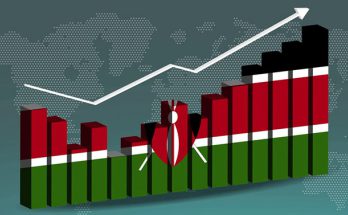 Nola Kianza is a man on a mission. The founder and CEO of the Canadian Council on Africa is travelling across Canada, meeting politicians and fellow businessmen to deliver a message:
Nola Kianza is a man on a mission. The founder and CEO of the Canadian Council on Africa is travelling across Canada, meeting politicians and fellow businessmen to deliver a message:
“Africa is not just about aid. Africa is the new frontier in business.”
Kianza wants to see Canada significantly grow its trade relationships with African countries. He says the plan would open new markets for Canadian companies, while creating prosperity and reducing poverty in Africa.
Canada’s trading relationships are “skewed,” says Phil Rourke, executive director of Carleton University’s Centre for Trade Policy and Law, and an advocate for increased trade with Africa. The U.S. accounts for 80 per cent of Canadian trade, with Europe at 15 per cent. Apart from a growing interest in China, Canada has invested little in trade relations with the rest of the world — least of all in Africa. With the current U.S. administration potentially threatening NATFA, Canada needs to re-examine that balance.
Canada already exports wheat to countries like Nigeria and Ghana. We import rubber and some consumer goods, including South African biltong (a type of dried meat), and Kenya’s Tusker beer. But there are bigger opportunities beyond natural resources and lager in Africa’s emerging tech industry, Rourke says.
Canadian businesses could take a cue from Facebook entrepreneur Mark Zuckerberg, who is touring countries like Nigeria seeking e-commerce start-ups to support and partner with.
A Canadian software company could exploit time differences by setting up a branch office in Ethiopia. At 5 p.m. in the capital Addis Ababa, a game developer hands off the latest project to her colleague in Montreal, where it’s only 10 a.m. The company achieves a productive double-length work day, creates economy-boosting tech jobs in Ethiopia, and helps stem the brain drain afflicting many African countries.
Canada could market its world-leading online banking expertise in Kenya. In return, Canadian consumers could benefit from Kenya’s remarkable advances in mobile phone banking.
Africa has a combined continental GDP in excess of $3 trillion. It’s a market Canada can no longer afford to overlook, Kianza argues. More than an economic strategy, African trade can also support Canada’s international development efforts.
In the U.S., the African Growth and Opportunity Act gives sub-Saharan countries duty-free access to the U.S. market. In exchange, these countries implement higher standards in workers’ rights and labour conditions. The agreement helped Lesotho build a clothing export industry, creating 40,000 jobs in the country with good working conditions. Many of those jobs went to women, increasing economic opportunities and equality.
Trade is a key component of the United Nations Sustainable Development Goals, the 15-year plan to fight global poverty. At a 2015 conference, UN officials declared, “trade can also help to promote productive employment and decent work, women’s empowerment and food security, as well as a reduction in inequality.”
Business and economic empowerment are among the most powerful tools we have to combat social problems.
In the 21st Century, trade can be the new aid.



